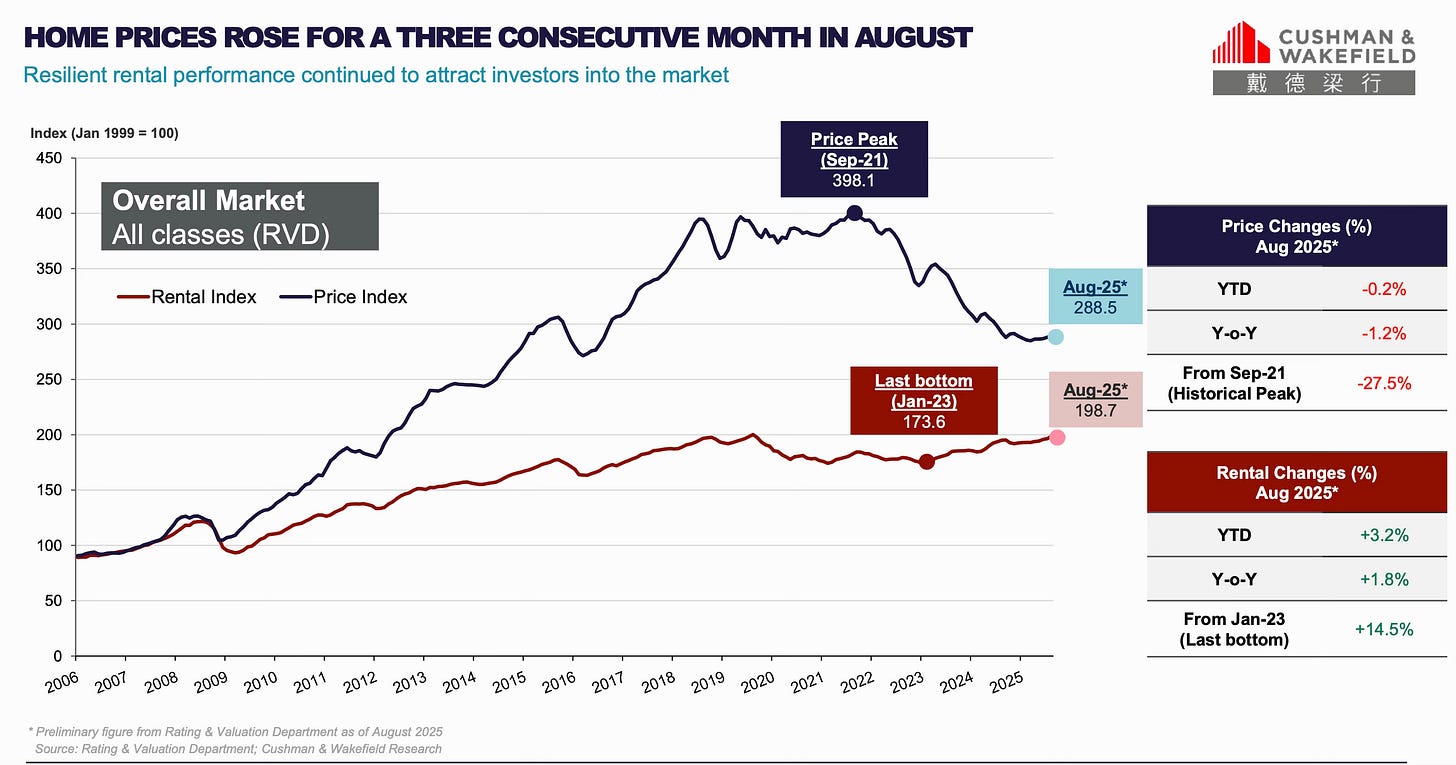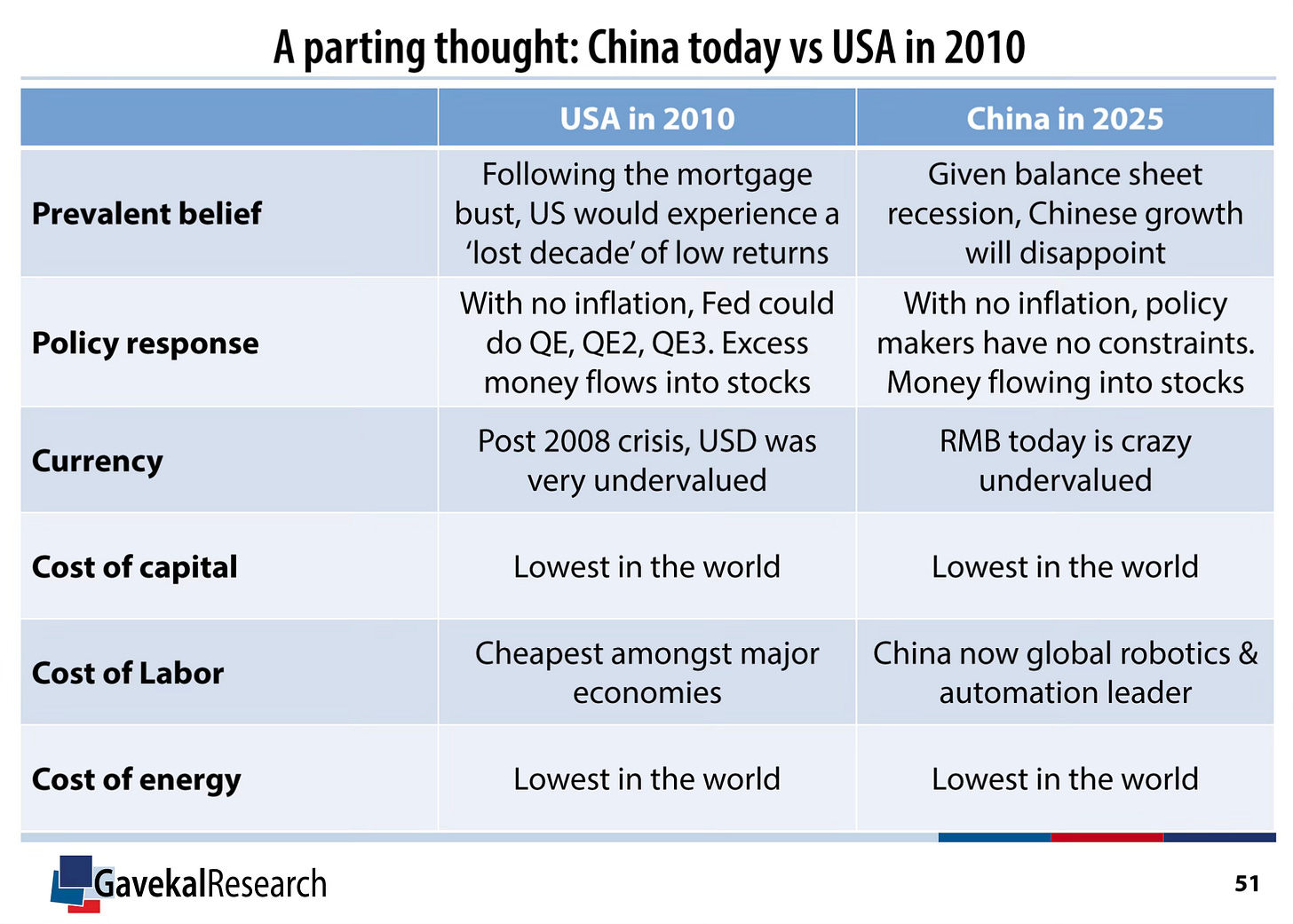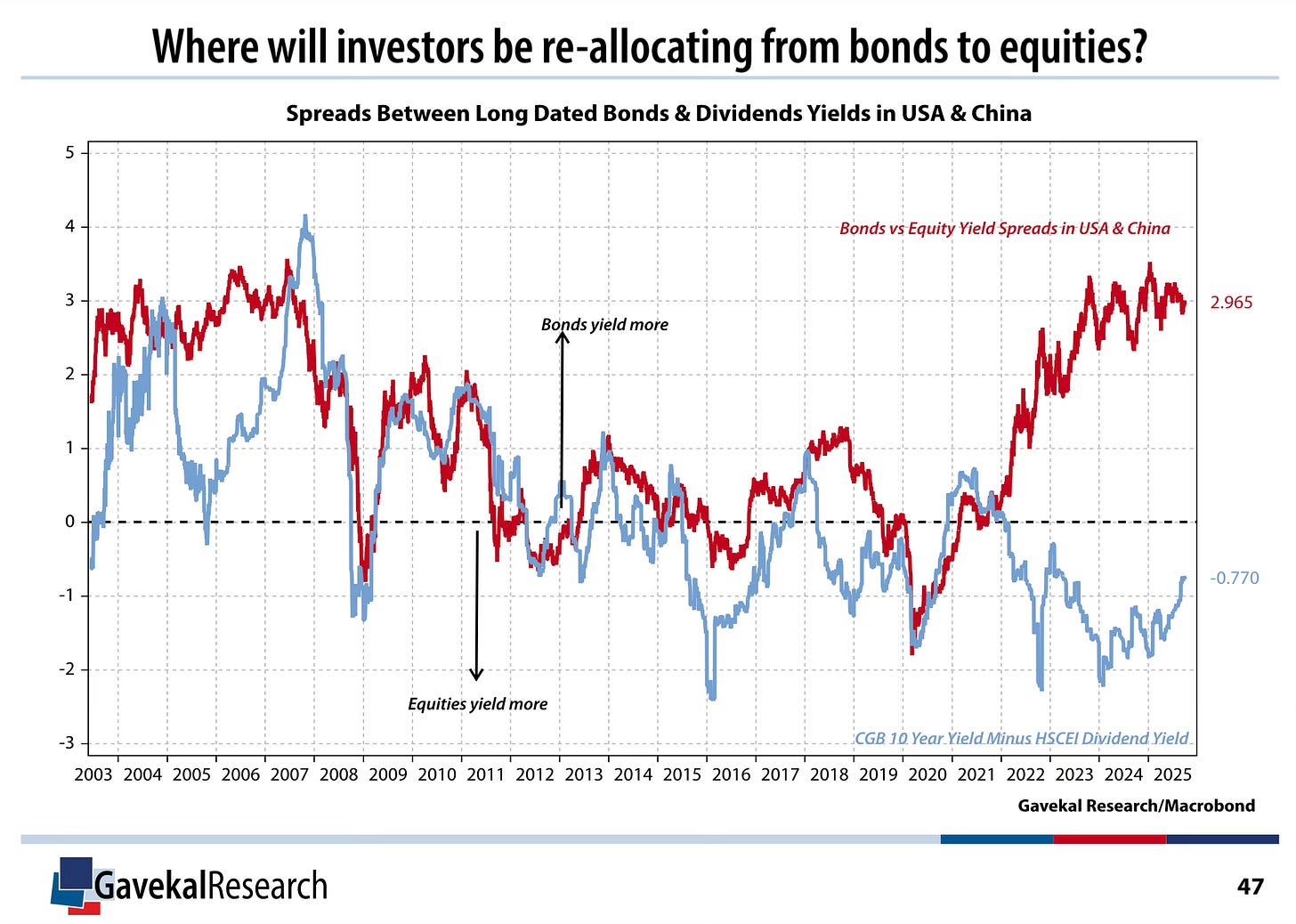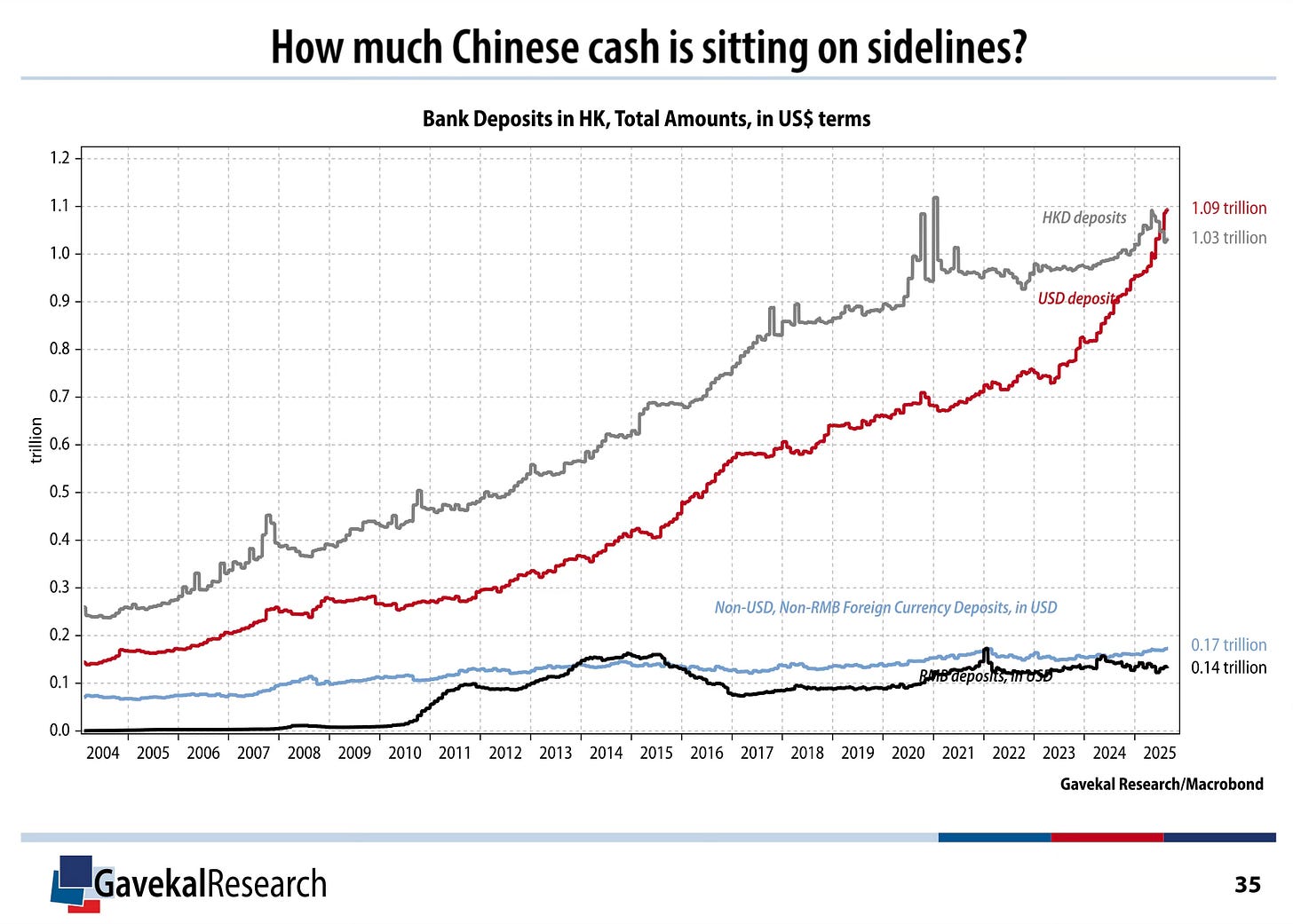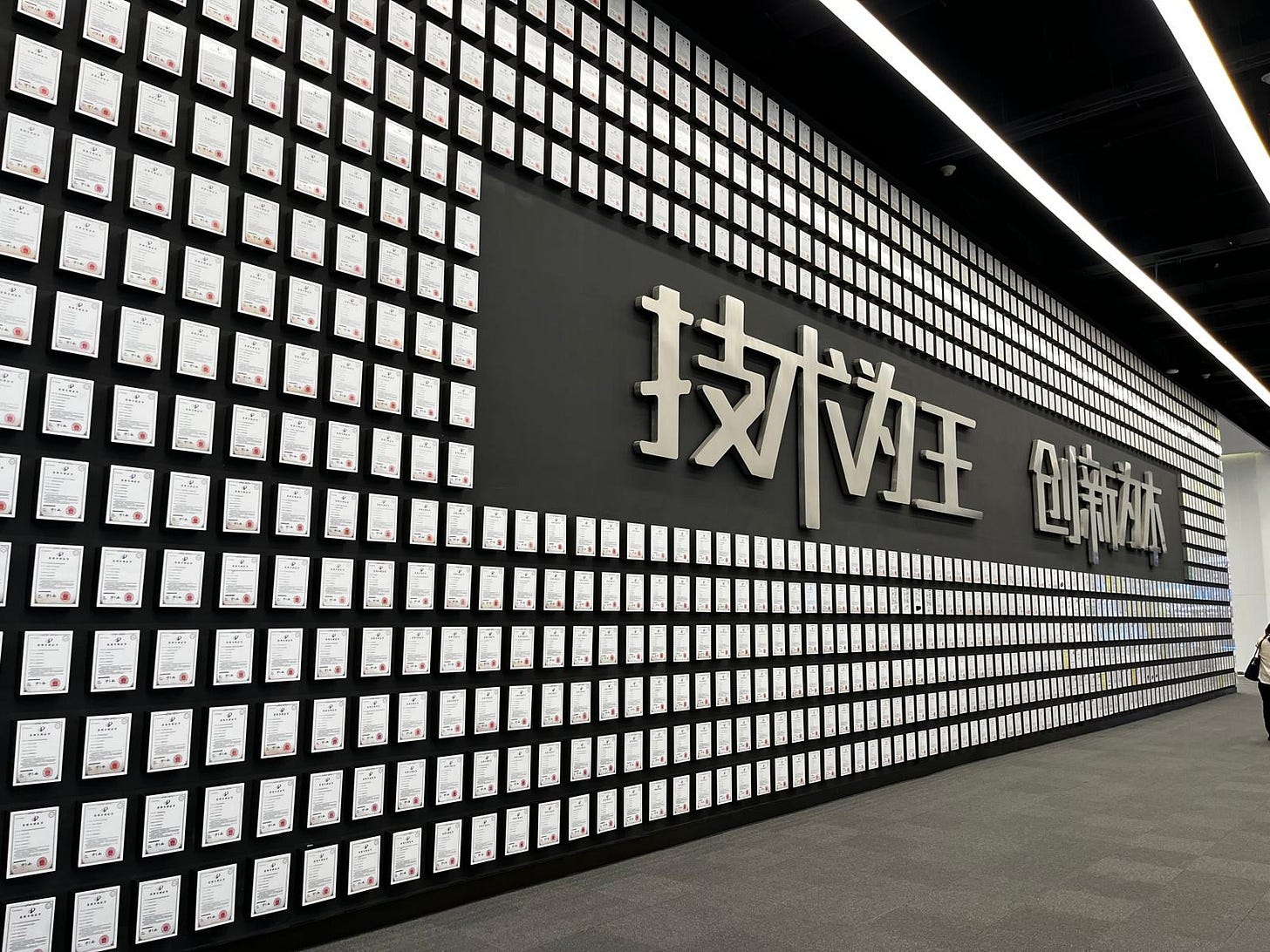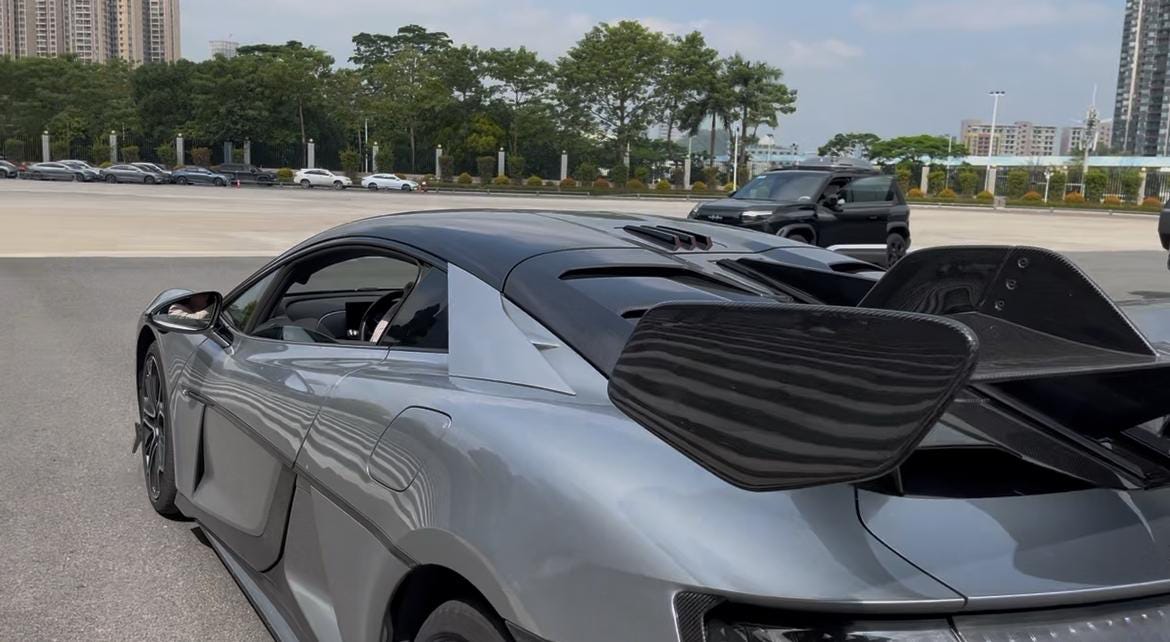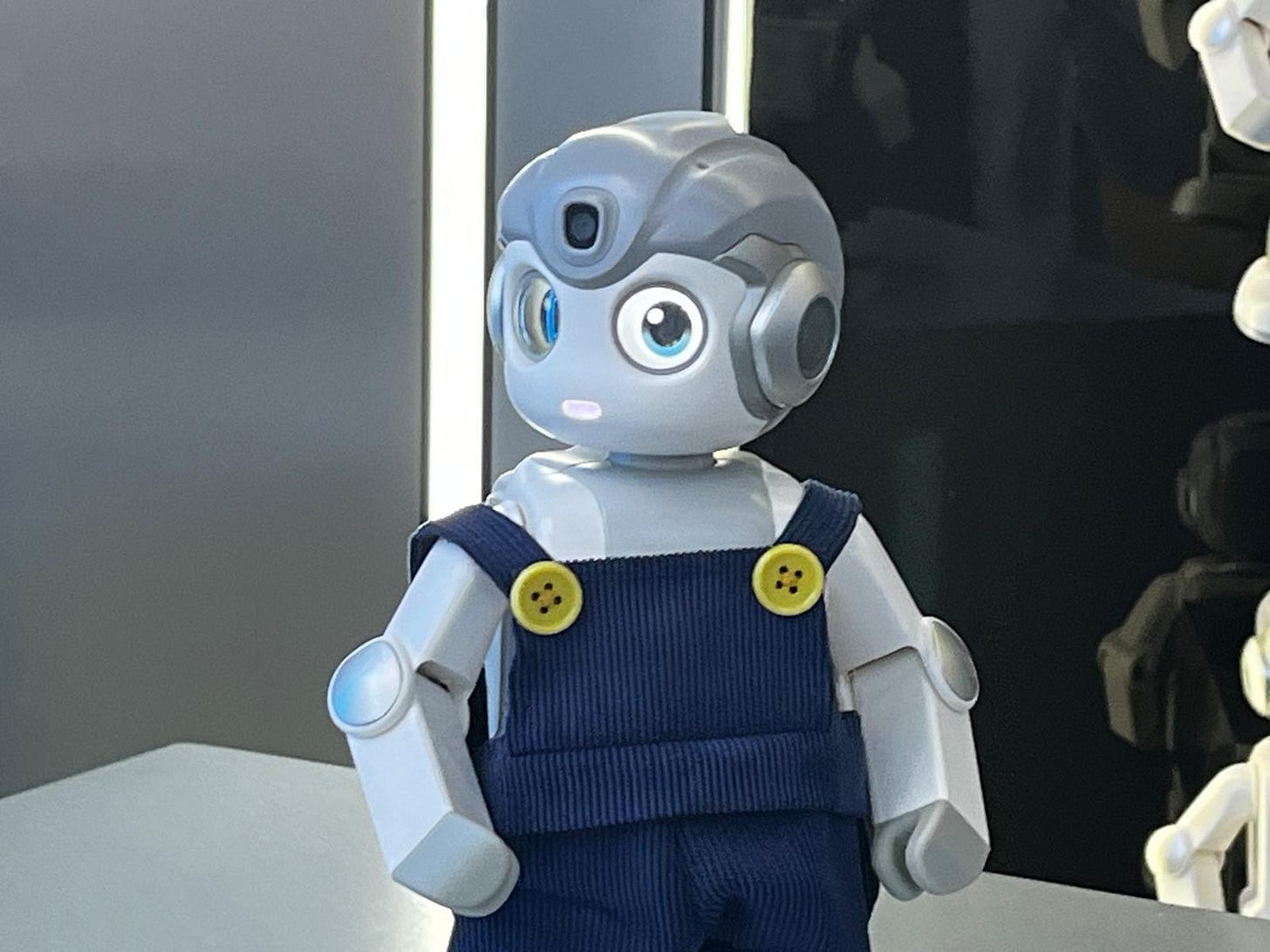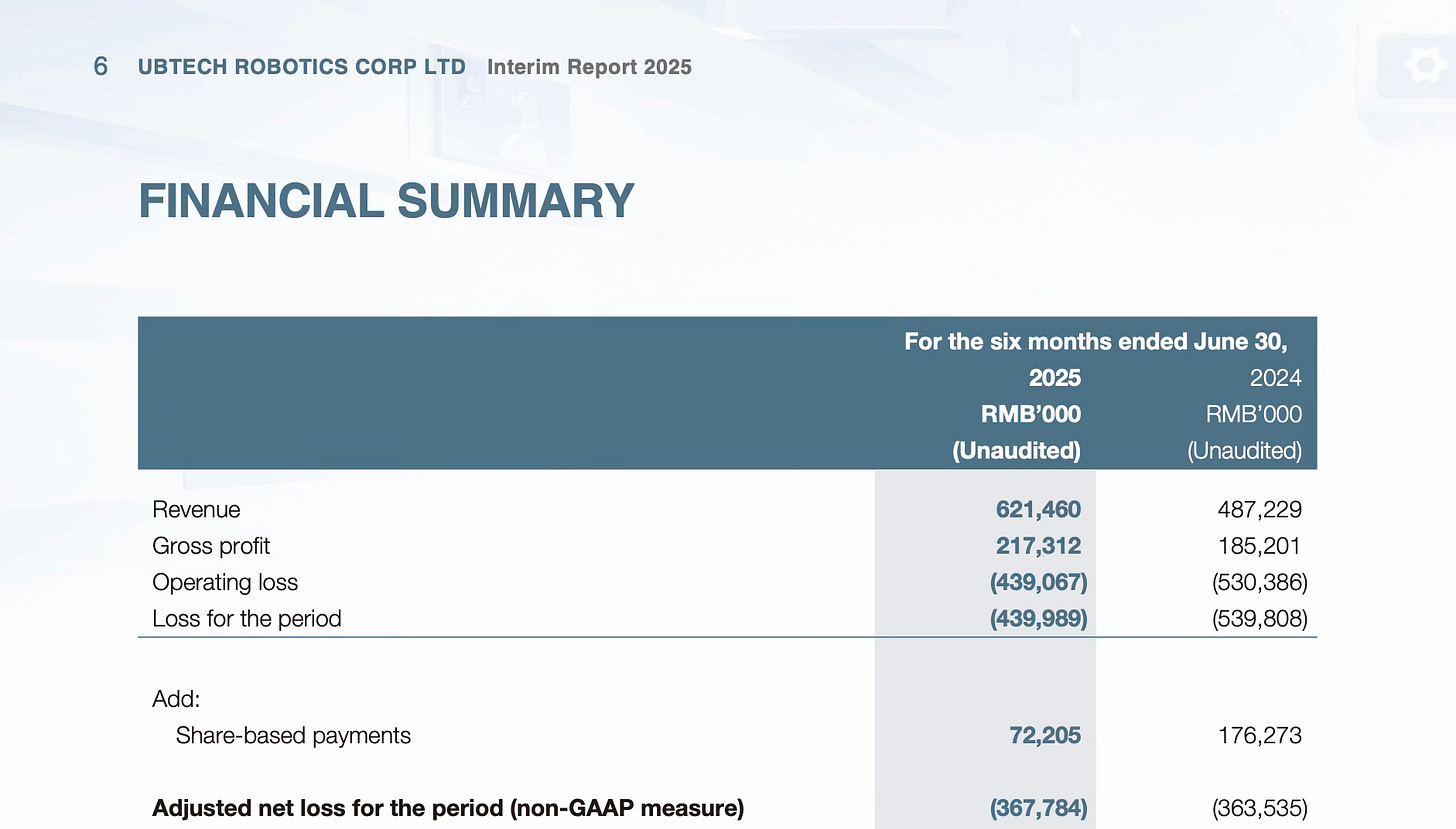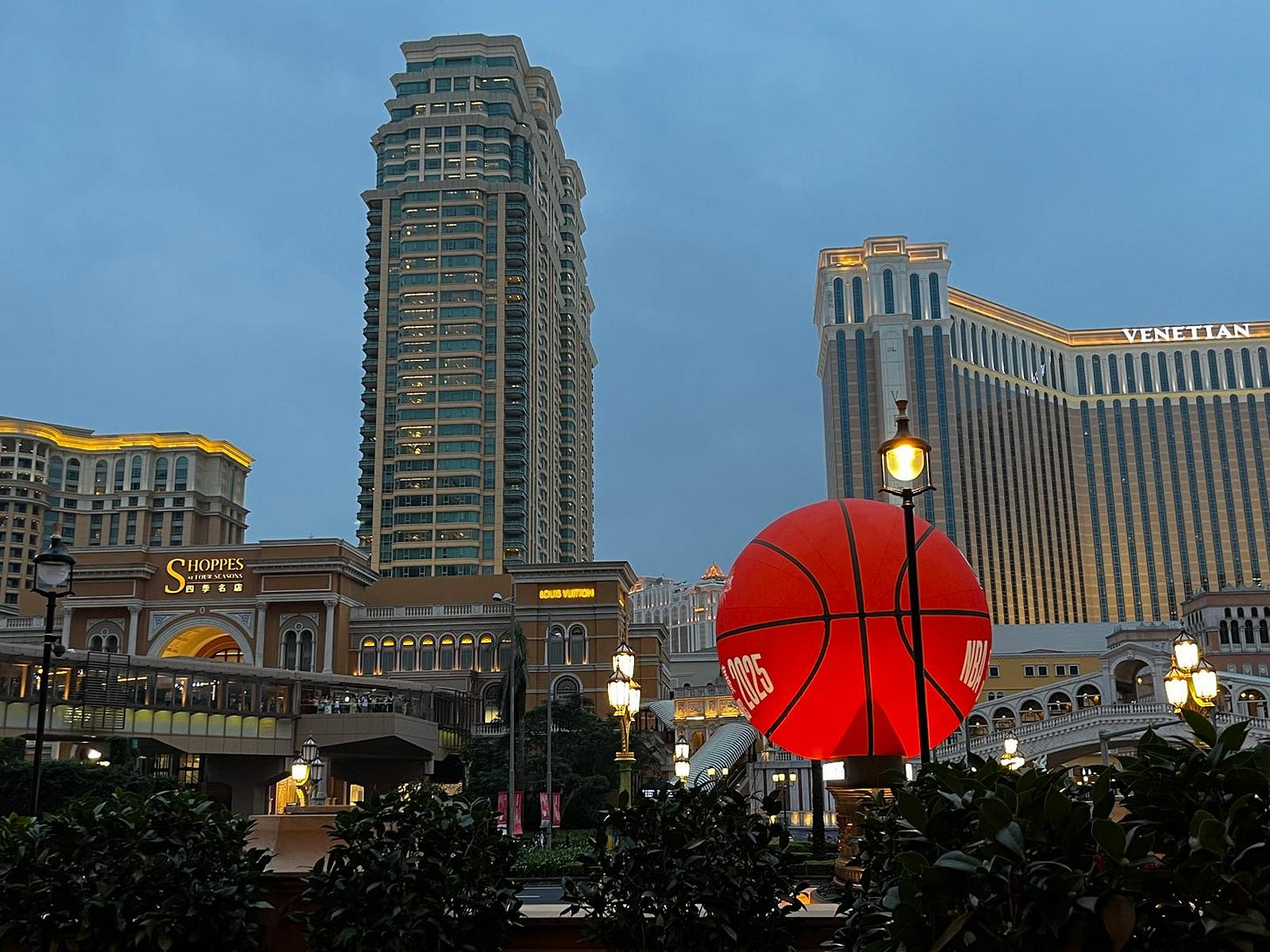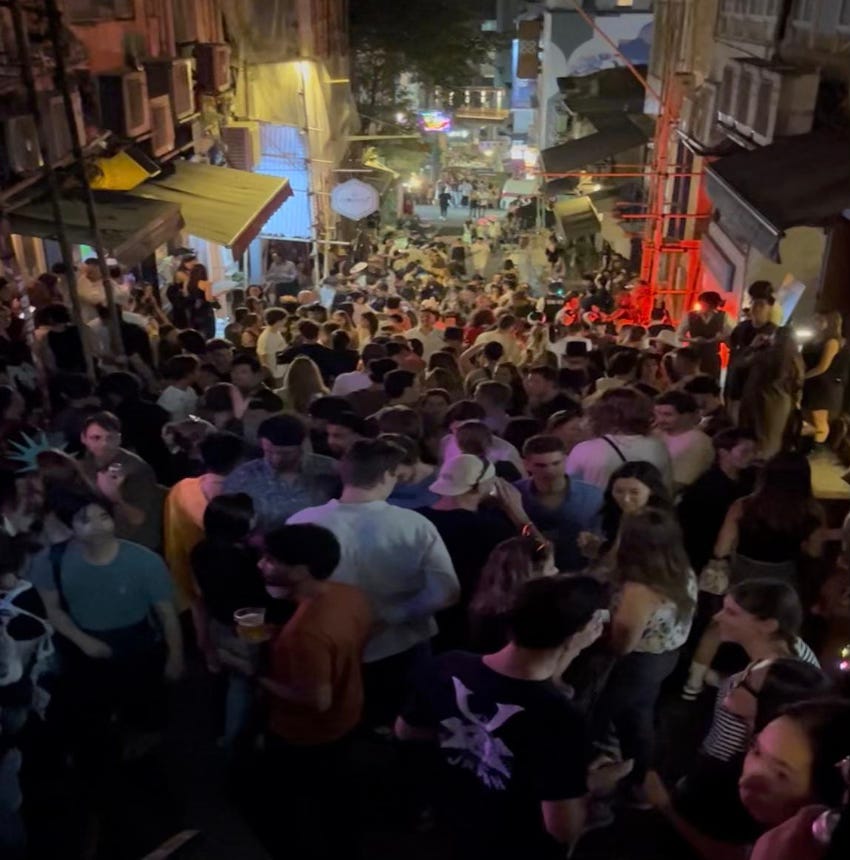YWR: China Trip Highlights
Are you ready for the next big, multi-year bull market?
Are you ready for 2010 again?
Well, the big new trend is not US datacenters.
It’s China/Hong Kong.
That’s the TLDR from my week in Hong Kong, Macau and Shenzhen.
HK Property has bottomed.
When a Tier 1 city like HK has had a big crash, we should be looking to buy. So I started the trip by visiting HK property companies (Wharf Real Estate Investment Company:1997 HK, Hysan Development:14:HK). Residential prices are down 27%, office rents are -40% and the stock prices are -60%!
Q3 2025 Cushman Wakefield report is at the bottom of the post
We met with both management teams, toured several properties, and came away interested, but not highly compelled (yet).
Yes, prices are down, but is real estate interesting compared to better industries like tech? And what’s the bull case? Which companies are going to come fill the 10% office vacancy gap? All the big banks are already here. Who are the new consumers who are going to splurge in the luxury shopping centers? And how does HK fit into the picture for China going forward? If foreign firms come to China will they bypass HK and go straight to the mainland?
Is HK interesting, but kind of 1980’s, and Dubai is the new thing?
These were the questions swirling around our heads.
That changed on Friday. At least for me.
We’ll get to that, but next there was a banger of a presentation by Louis Vincent Gave on the bull case for Chinese stocks.
The Bull Market in Chinese Equities
The Chinese government is under pressure to make things right for Millenials and Gen X’ers who got smashed by the property market crash. Both generations are hurting and have lost money. The problem is inflating the property market again creates social problems for the next generation.
But there is a new asset class the government can inflate, which is good for the economy and makes everyone richer.
Equities.
For 10 years from 2005-2015 the government pushed everyone to buy property and it was the biggest property bull market in the world.
Now the push is for Chinese to buy equities.
Which means we could be about have one of the biggest multi-year bull markets in the world.
China just had its version of the GFC and 2025 is like their 2010.
Chinese equities are massively attractive relative to 1.7% 10 year yields. Isn’t interesting that an ‘EM’ has the lowest bond yields in the world?
And the cash is stacked up at HK banks.
What happens if these trillions get deployed into the HK equity market? It’s why we own Hong Kong Exchanges.
Looking at these charts where do you think you should you be allocated?
Louis’s full 56 slide presentation is at the bottom of the post.
Which brings us to Shenzhen.
The New Silicon Valley
North of HK, just over the border is Shenzhen.
And wow.
We met BYD, UBTech Robotics and Tencent
You have to appreciate the effort BYD has put into their corporate showroom. It’s a special building complete with tour guides and headsets to take you through the history of the company, the development of their technology and displays of the cars. You can’t help coming away super impressed. Take their Great Wall of 30,000 Patents.' It’s one thing to say ‘We have 120,000 engineers and 30,000 patents’. It’s another to build a 100 meter long wall displaying all of them. See what I mean?
Then the exploding battery display to show how competitor batteries explode and burn, but the BYD Blade doesn’t.
Then the cars. The cars looked great. Especially the high end SUV’s and the Supercars.
And can I tell you the killer touch?
After the tour 6 BYD cars were lined up for us to zoom around the parking lot. No waivers, no drivers licenses. Just go and do whatever you want.
Of course we all wanted to let it rip in the U9 super car. Which we did.
In summary BYD is the top car company in China world and the price points are unbeatable. The cars are all listed for 30% less than you expect, whether it’s the Bugatti look alike super car for $200k, the luxury SUV with detachable roof drone, the Tesla S-Class killer, or the economy car for $7k. There is a reason BYD is gaining so much market share. We came away highly impressed.
Then UBTech Robotics.
What surprised me about UBTech Robotics wasn’t the robots, it was how much the rest of our group did not care about it.
UBTech makes both industrial robots and interestingly, robotic toys for children. We are all focused on the factory robots, but the toys caught my imagination. The robot toys speak with you using an LLM model, and have pretty highly pixelated eyes. They walk around, and do push ups if you ask them. Then complain they are tired. They can even make phone calls.
Of course there was also Walker S2 their robot for industrial use cases, which BYD is using.
But none of this mattered.
My fellow investors didn’t care.
They were quite sure Chinese robots will be like solar panels, or anything else with lots of Chinese players. A flood of companies will bash each other’s brains out on price, and in the end nobody will make any money. So who cares?
They’d written off robots before they even got started.
Maybe I’m naive, but it was this lack of interest which caught my attention. Biggest change in humanity and a roomful of investors just wanted to wrap it up and get on to Tencent. It made me want to learn more.
Maybe there are software and context moats which will exist in robots, which don’t in solar panels. Maybe the business model is different. For example, are robot toys like iPhones? Could a robot toy build up a history of experiences with your child to where you want to keep a robot from the same company so the new robot remembers all their inside jokes and stories? The same way the iPhone remembers all your apps and settings.
Could industrial robots in a factory be like an SAP implementation where once you’ve installed a swarm of robots, and the processes are working, is it a huge risk and undertaking to swap them out for another robot 10% cheaper?
Will the leading robot companies accumulate software advantages from working with their customers the same way Tesla is gaining advantages from its existing fleet of self-driving cars?
I want to look into all of this more.
Maybe I should be trying to buy a robotic dealership.
Then the day ended with Tencent.
I’d say 2 big takeaways on Tencent.
First, Tencent are developing tons of new tech across the board from datacenters, to chips, to virtual reality for gaming, to AI healthcare. They mention these initiatives in the conference calls, but seeing the demos in person, I got a better appreciation for their value and also the breadth of the initiatives. Tencent is like Google for China. The goal is for you to use their products all day for everything. It started with payments, messaging and games, but they are building these services out into healthcare and corporate communications as well.
Second, Tencent and BYD are to Shenzhen what Amazon and Microsoft are to Seattle. They are creating a cluster effect. Two national champions churning out thousands of new tech ideas, which creates lots of super smart, rich engineers, who later spin out to create new companies. The result is the Shenzhen tech start-up scene and you have to be there. Same as Seattle with Amazon and Microsoft.
Then, it was a 90 minute drive back to HK, the financial capital of Asia. Kind of like driving back to SF from Palo Alto.
Do you see the power of that combo?
This is the SF of Asia, the future of world AI and robotic technology, with prices down 25% from the highs.
It makes HK property a lot more interesting.
Other random takeways
Met a Chinese big hitter in Shenzhen who is looking for investors to help buy a $250mn office building. He said you should be buying everything you can in China right now.
Had dinner with the CEO of a commodities trading firm and was surprised she has been to the DRC twice this year already to visit copper mines. She was highly active and interested in Africa, which is rare to see, but I guess not in China.
I should probably buy more Tencent and HKEX. Maybe Swire Pacific too.
Macau was active on a Saturday night. The casinos in both Cotai and the old town were full. I was amazed the table minimums were HK$ 500/hand (US$ 62). It seemed high for mainland Chinese, but the tables were packed and we couldn’t get a seat.
The Macau casinos might resemble Las Vegas, but a night out there is quieter, with less drinking. The Chinese gamblers take their gambling seriously. For them it is a job. They intend to win. It isn’t vodka red bulls, hooting and hollering around the craps table.
Maybe Macau needs a Hard Rock Cafe format for partying.
Chinese airlines like China Eastern are a massive bargain right now. Tickets are $200 cheaper than everyone else and the planes are packed. The passengers are not just going to China. They are connecting through to Japan, Korea and the rest of Asia. It might be an Emirates type play where they are trying to get more people to come to China.
And finally, Halloween in Hong Kong.
Off the charts.
Lan Kwai Fong and Peel Street were wall to wall packed with partyers. I usually hate huge crowds, but it was so much fun we stayed out til 4am. And it was still going.
But you know the best thing?
Everyone was getting along. Everyone was super friendly. No fights.
Tons of police, but no problems. People chatting nicely with them.
It was all super safe and fun.
And maybe in this day and age that’s the biggest bull case of all for HK and the rest of East Asia.
Below are the Gavekal Megatrends presentation and the Cushman HK property report.
Have a good weekend.
Erik


